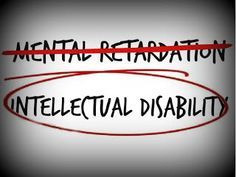Labels: a divisive power grab
Why does terminology change – and who benefits from this? According to Chris Goodey, it’s all about power and contempt, and he has psychologists and intellectuals in his sights
Once it was idiocy, then it was mental deficiency, then mental handicap, then mental retardation. For most people today, the phrase is learning disability.
However, I keep tripping over something called ‘intellectual disability’. Having started off at the top in medicine, psychiatry and psychology, this phrase is now percolating through the system. It is on the increase, and I confess that publishers have forced to me use it myself, although I always put it in quote marks.
Hands up any reader who would describe themselves as intellectual? No one? An intellectual is always someone who is more ‘intellectual’ than you. But, clearly, if you’re not an intellectual, then you must be intellectually disabled. So why are only a small minority explicitly labelled like this? Who are the intellectuals, if not all of us?
The answer is: the sort of people who have come up with the phrase ‘intellectual disability’. However, psychology is not an intellectual pursuit – it’s a bureaucratic one, a filing system. A bureaucrat’s job is to sort individual items under general headings; a psychologist’s job is to sort individual people into general categories.
An intellectual, on the other hand, in everyday language, is someone interested in the arts, ideas, philosophy, morals and so on, and likes talking about them. And someone with a learning disability as currently defined – not to mention you or I – is no less likely to be interested in beauty or morals than anyone else.
So psychologists and the medical people who adopt their terminology are not really intellectuals in the way the word is normally used. They have turfed such matters out of the nest, so as to replace them with one particular item: cognitive ability, for which they claim top spot. And only an expert in cognitive ability can tell you what cognitive ability is.
Experts and humans
In the academic rat race, this is what defines human beings and their place in the natural world. You are not fully human unless you have it. And, by implication, the more of it you have the more human you are. So a cognitive psychologist is the supreme example of a human being.
Well, it’s a point of view. It’s the point of view of those who are temporarily in the driving seat and have control over other people’s lives. Perhaps, in the light of person-centred planning, their control is diminishing, although the process is painfully slow.
No, I have not had enough of experts. I have just had enough of one particular kind of expert: one who claims their expertise is the core component of all other expertise in all other fields of human aspiration.
No label is an improvement upon another when all it means is a transfer of power from one labeller to the next, and of disdain and contempt for the powerless. Intellectual disability is the latest. Learning disability can carry on being the worst label apart from all the rest.
From label to insult
The story goes that one label is an improvement upon another. It makes it clearer what we are talking about. Or it replaces an insult. This begs the question: can it ever be clear what we are talking about? And why does every new term become at some point an insult?
Even over the past century, there have been more than 50 terms for the same thing. Which makes me ask: is there a ‘thing’ at all? Other than the fact that some people, at some point in history, need more support for certain things than others do.
On the one hand, ‘learning’ suggests something formal, probably to do with psychology; on the other hand, all of us have learning disabilities in some respect. It’s just that some of us need more support for certain things than others.
There’s no denying that the need is real. But this need is created by particular social conditions that come and go. For example, the built environment, lifestyles, and the nature and organisation of work create different kinds of outsider.
People with what we call learning disabilities today would not have been noticed in a rural society in the past. And we do not know what social conditions will look like when another century has passed Ð problems for some people will no longer exist and other problems, for other people, will have surfaced.
Words matter, but physical segregation Ð in assessment and treatment centres, in schools – matters more. An inclusive society wouldn’t have a word of any kind because it wouldn’t have the concept. Without conceptual segregation, there can be no physical segregation – and viceversa.
Chris Goodey is a historian and writes about the history of psychology

